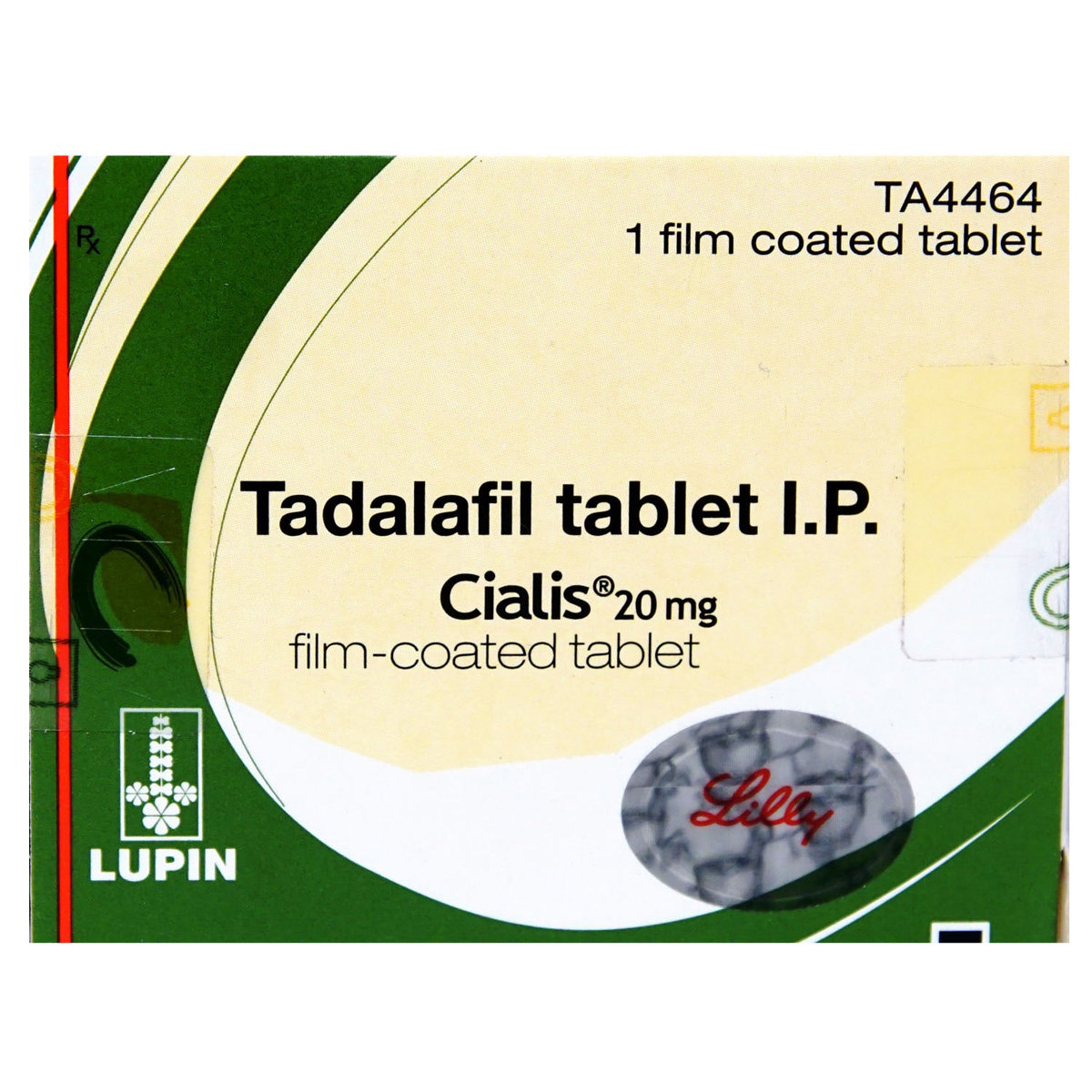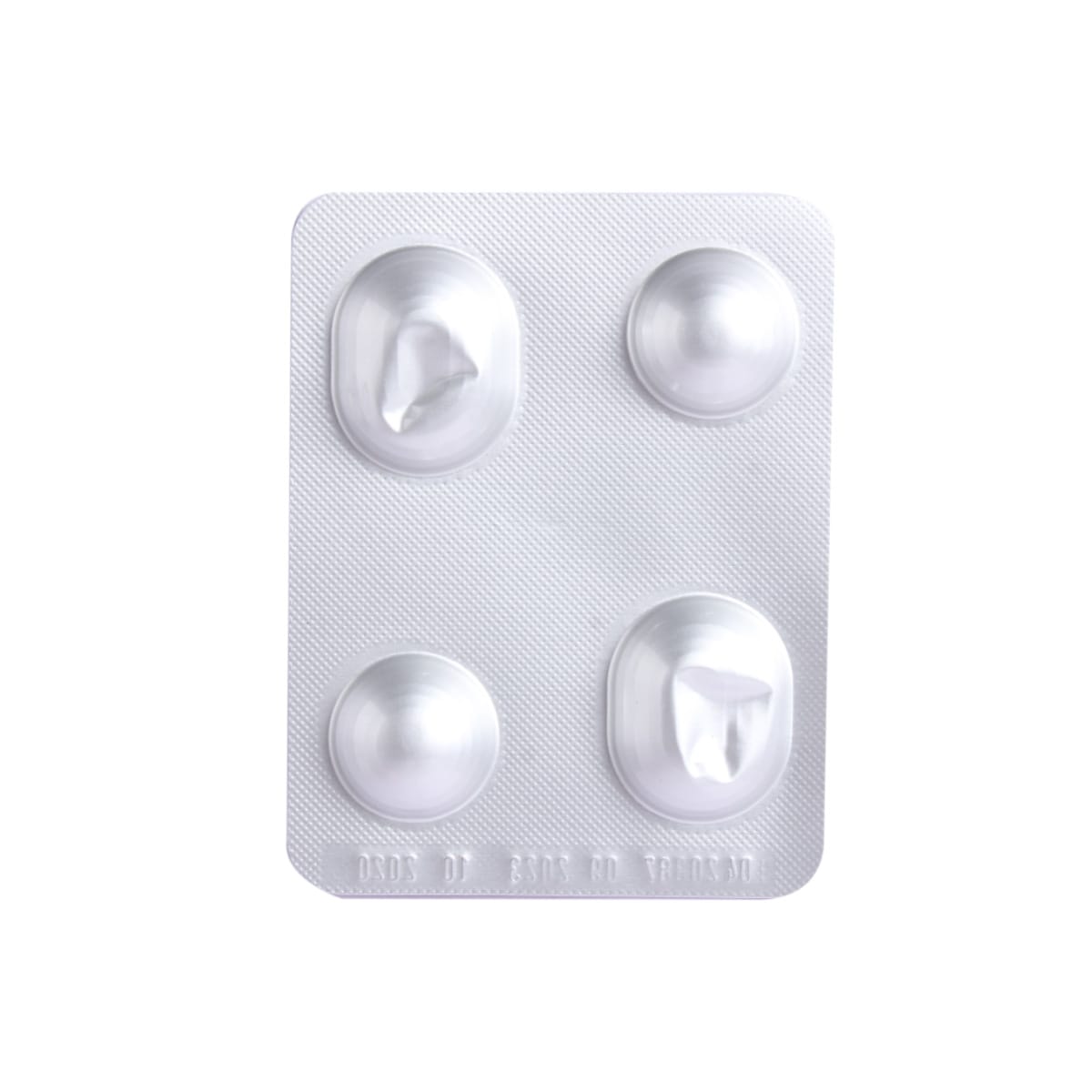Tadalafil
About Tadalafil
Tadalafil is primarily used to treat erectile dysfunction (impotence) and benign prostatic hyperplasia (BPH). Erectile dysfunction is the inability to keep a hard and erect penis suitable for sexual activity. Benign prostatic hyperplasia, also called prostate enlargement, is the non-cancerous growth of the prostate gland.
Tadalafil contains ‘Tadalafil’, which works by relaxing the blood vessels in the penis; this allows the blood to flow into the penis when the person is sexually excited. Thereby, it helps to treat erectile dysfunction.
In some cases, you may experience certain common side effects, such as headache, back pain, muscle pain, pain in the legs and arms, nasal congestion, indigestion, and facial flushing. If you experience these side effects persistently, talk to your doctor.
Inform your doctor if you're allergic to any of the constituents in Tadalafil. Tadalafil is not intended for use in women. Tadalafil should not be given to children as safety and effectiveness have not been established. Keep your doctor informed about your health condition and the medicines you are taking to avoid unpleasant side effects.
Uses of Tadalafil
• Treatment for Erectile Dysfunction: Tadalafil is frequently prescribed to men in order to help them attain and sustain an erection during intercourse.
• Treatment of Benign Prostatic Hyperplasia: Tadalafil can also be used to reduce the symptoms of benign prostatic hyperplasia (BPH), such as frequent urination and trouble urinating.
• Treatment of Pulmonary Arterial Hypertension: Tadalafil can be used to treat pulmonary arterial hypertension (PAH), which helps affected individuals to exercise more and postpone clinical deterioration.
• Enhancement of Sexual Performance: Tadalafil helps many users feel more confident and satisfied during intimate moments, in addition to treating erectile dysfunction.
Medicinal Benefits
- Tadalafil helps men achieve and maintain an erection by improving blood flow to the penis during sexual stimulation.
- It relaxes the smooth muscles of the bladder and prostate, easing urinary symptoms such as difficulty starting urination, weak urine stream, and frequent/urgent need to urinate.
- Enhancing erectile function can help improve confidence and sexual satisfaction.
- It provides relief from bothersome urinary symptoms associated with an enlarged prostate.
- Treating ED and BPH together helps improve both physical comfort and emotional well-being.
Directions for Use
- Take Tadalafil with or without food, or as advised by a doctor.
- Recommended to take the medicine at least 30 minutes before sex or as advised by your doctor.
- Keep the medicine in the mouth and allow it to disintegrate.
- Do not swallow as a whole.
Storage
Side Effects of Tadalafil
- Headache
- Back pain
- Muscle pain
- Pain in legs and arms
- Nasal congestion
- Indigestion
- Facial flushing
Drug Warnings
- Do not take Tadalafil if you are allergic to any of its contents; if you are taking nitrates (used to treat angina), riociguat (used to treat pulmonary hypertension) or alpha-blockers; if you have heart problems or stroke, low blood pressure or uncontrolled high blood pressure, if you ever had a loss of vision.
- Inform your doctor if you have sickle cell anaemia (abnormal red blood cells), multiple myeloma (cancer of bone marrow), leukaemia (blood cell cancer), deformation in the penis, or severe kidney or liver problems.
- Consult your doctor immediately if you experience loss of vision or hearing while taking Tadalafil.
- Tadalafil may cause dizziness, so drive with caution.
- Avoid consuming alcohol, as it might cause increased dizziness.
- Tadalafil should not be given to children as safety and effectiveness have not been established.
Drug Interactions
Drug-Drug Interactions: Tadalafil may interact with anti-hypertensive (amlodipine, lisinopril, losartan, metoprolol, riociguat), alpha-blockers (tamsulosin), anti-anginal (nitroglycerin), anti-fungal (ketoconazole, itraconazole), antibiotics (erythromycin, clarithromycin), anti-TB (rifampicin), anticonvulsants (phenobarbital, phenytoin, carbamazepine), anti-HIV (ritonavir).
Drug-Food Interactions: No interactions found/established.
Drug-Disease Interactions: Inform your doctor if you have cardiovascular/heart disease, renal dysfunction (kidney impairment), pulmonary disease, alcoholism, liver disease, seizure disorder, hearing loss, retinitis pigmentosa (loss of vision) and priapism (prolonged erection of the penis).
Drug-Drug Interactions Checker List:
Safety Advice

Alcohol
unsafeYou are advised not to consume alcohol while taking Tadalafil as it may cause increased dizziness.

Pregnancy
unsafeTadalafil is not recommended for use in pregnancy. It is for use by men only.

Breast Feeding
unsafeTadalafil is not recommended for use during breastfeeding. It is for use by men only.

Driving
cautionTadalafil may cause dizziness. Therefore, you are advised to drive and operate machinery only if you are alert.

Liver
cautionDose adjustment may be needed. Please consult your doctor before taking Tadalafil if you have liver impairment/liver disease or any concerns regarding this.

Kidney
cautionDose adjustment may be needed. Please consult your doctor before taking Tadalafil if you have kidney impairment/kidney disease or any concerns regarding this.

Children
unsafeTadalafil should not be given to children as the safety and effectiveness have not been established.
Habit Forming
Diet & Lifestyle Advise
Erectile dysfunction:
- Maintaining a healthy weight, eating a balanced diet, and regular exercise may help you manage erectile dysfunction.
- Avoid alcohol consumption, as it may temporarily impair your ability to get an erection.
- Avoid the use of tobacco.
- Share intimate time with your partner.
- Stay sexually active to prevent further problems with erectile dysfunction.
Benign prostatic hyperplasia (BPH):
- Avoid foods like sugars, carbonated beverages, tea, citrus fruits, tomatoes, spicy foods, and chocolate.
- Limit fluid intake, as excess fluid intake could cause an urge to urinate frequently.
- Avoid drinking excess alcohol or caffeinated drinks, as they can worsen the symptoms.
- Maintain a healthy weight and exercise regularly.
- Quit smoking.
- Take 6-8 glasses of liquids every day.
- Avoid processed foods. Instead, choose whole, unprocessed foods.
- Include fruits, vegetables, and fibre-rich food in your diet.
Special Advise
- Take Tadalafil 30 minutes to 4 hours before sexual intercourse. However, it is best to take it an hour before sexual activity.
- Do not take Tadalafil more than once a day. Take Tadalafil as prescribed by the doctor.
- Talk to your doctor if the erection persists for more than four hours.
Patients Concern
Disease/Condition Glossary
Erectile dysfunction: It is the inability to keep a hard and erect penis suitable for sexual intercourse. Certain health-related factors, such as smoking, drinking, being overweight, being physically inactive, and high blood pressure, also contribute to erectile dysfunction. Symptoms of erectile dysfunction include difficulty in getting an erection, difficulty in maintaining the erection during intercourse and decreased sexual desire.
Benign prostatic hyperplasia (BPH): Benign prostatic hyperplasia, also called prostate enlargement, is the non-cancerous growth of the prostate gland due to the multiplication of cells. This leads to swelling and squeezing of the urethra and limits the urine flow. BPH symptoms include loss of bladder control, frequent urination, inability to urinate, incomplete bladder emptying, weak urinary stream, dribbling at the end of the urinary stream, sudden urge to urinate, and painful urination.
FAQs
Tadalafil is used to treat Erectile dysfunction (impotence) and benign prostatic hyperplasia (BPH).
Tadalafil relaxes the muscles in the bladder and prostate, thereby reducing the symptoms of benign prostatic hyperplasia (BPH) or enlarged prostate, such as difficulty in urination and urgent need to urinate.
No, do not take Tadalafil with nitrates. Taking Tadalafil with medicines used to treat angina/chest pain, such as nitrates/nitroglycerin, may cause severe lowering of blood pressure. You are advised not to take Tadalafil if you are taking nitrates or have a history of heart attack/stroke.
Tadalafil works by relaxing the blood vessels in the penis, thereby allows the blood flow into the penis when the person is sexually excited.
Common side-effects of Tadalafil may include headache, back pain, muscle pain, pain in the legs and arms, nasal congestion, indigestion, and facial flushing. Most of these side effects do not require medical attention and will resolve gradually. However, you are advised to talk to your doctor if you experience these side effects persistently.
Tadalafil taken up to once daily for 18 to 24 months was safe and well-tolerated. These findings support the long-term use of Tadalafil in the clinical management of erectile dysfunction. However, it is recommended to take only if prescribed by the doctor.
Tadalafil is a safe and effective medication. However, Tadalafil is not suitable for some people. To ensure it's safe for you, tell your doctor if you have ever had an allergic reaction to Tadalafil or any other medicine.
There is no evidence that consuming Tadalafil reduces fertility. However, consult a doctor if you have any concerns.
Alcohol can make it more challenging to get an erection. To get the most out of Tadalafil, avoid excessive drinking before taking it.
If you experience a sudden loss of vision or sudden problems with your hearing, stop taking Tadalafil immediately. Consult your doctor if you have a prolonged or painful erection, especially if it lasts for more than 2 hours.
No – do not take Tadalafil more than once a day.
If you're taking Tadalafil to treat erectile dysfunction, you should be able to get an erection within 30 minutes to 36 hours. You must be sexually excited for it to work. Your erection should subside after you have sex.
Erectile dysfunction can often be improved if you make changes to your lifestyle, such as maintaining a healthy weight, quitting smoking, cutting down on the amount of alcohol you drink, not taking recreational drugs, exercising and reducing stress.





